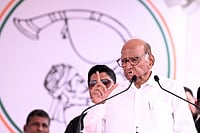There is no link between the use of ranitidine, applied for treating and preventing gastric ulcers, and cancer, according to a recent study. Conducted in South Korea, the study, published in the journal Nature, evaluated the records of 12,680 ranitidine users and 12,680 other H2RA (ranitidine-like medicines) users.
N-nitroso dimethylamine (NDMA) is a probable human carcinogen. Following the detection of unacceptable levels of NDMA impurities in many ranitidine products in 2019, measures were taken to withdraw it from the market.
Speaking about the research and negating the risk of the association of cancer with the use of ranitidine, one of the lead researchers Ju-Young Shin of Sungkyunkwan University, Seoul, said, "We found no association between ranitidine with potential NDMA impurities and risk of major individual malignancies and overall cancer."
"The debate on ranitidine and its association (with cancer) has been going on for three years; however, the bug (molecule) has been in the market for over four decades. All of us have used it over the years for treating our patients for indigestion, heartburn and acid reflux.
"I haven't come across a single patient who had cancer as a result of using ranitidine. The latest retrospective study published in Nature provides substantial evidence that it is safe to use in aforesaid indications," said Dr Subhash C Jain a cardiologist.
Ranitidine has been in existence for over four decades and has been on the WHO list of essential medicines for several years. It is commonly used in the treatment of peptic ulcer, gastroesophageal reflux, and Zollinger–Ellison syndrome. "The South Korean retrospective study published in Nature has further affirmed the findings of previous studies concluding no association between ranitidine and cancer.
"The molecule has a history of 43 years and is safe to use as per available scientific evidence. I use Ranitidine as co-prescription with dual anti-platelet therapy for my cardiac patient along with various GI indications," said Dr Manoj Kumar, Senior Director and Unit Head-Cath Lab, Cardiac Sciences, at Delhi's Max Super Speciality Hospital in Patparganj.


























